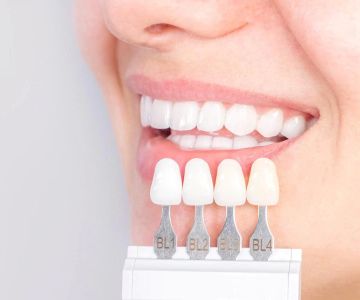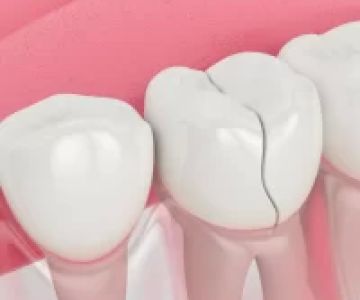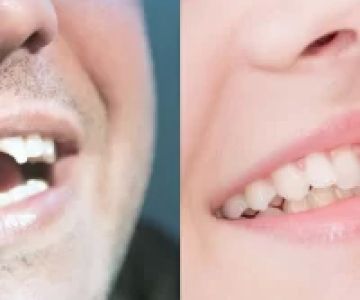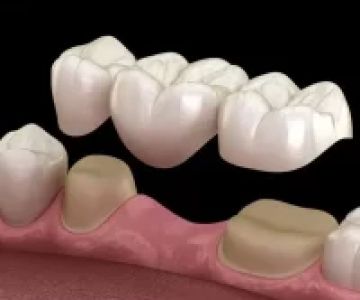What Are the Symptoms of TMJ Disorder? Understanding and Managing Jaw Pain
- 1. What Is TMJ Disorder?
- 2. Common Symptoms of TMJ Disorder
- 3. What Causes TMJ Disorder?
- 4. How to Manage TMJ Disorder
- 5. Real-Life Example: Managing TMJ Disorder
- 6. Explore More TMJ Treatment Options at Dentistry Toothtruth
1. What Is TMJ Disorder?
TMJ (Temporomandibular Joint) disorder is a condition that affects the jaw joint, causing pain and discomfort. This joint connects your jawbone to your skull, allowing for movement such as chewing, speaking, and yawning. TMJ disorder can cause a variety of symptoms, many of which can be quite bothersome. It can affect both adults and children and is often linked to problems with the muscles controlling jaw movement.
Understanding the symptoms and causes of TMJ disorder can help you manage the condition and seek the right treatment. Symptoms of TMJ disorder can range from mild discomfort to severe pain and difficulty with jaw movement.
2. Common Symptoms of TMJ Disorder
TMJ disorder can cause a wide variety of symptoms, some of which may be mistaken for other conditions. Recognizing the signs early on is key to managing the disorder effectively. Here are some of the most common symptoms of TMJ disorder:
- Jaw pain: Pain in the jaw joint is the hallmark symptom of TMJ disorder. The pain can be sharp or dull and may be aggravated by activities like chewing or talking.
- Clicking or popping sounds: When moving your jaw, you may hear a clicking, popping, or grating sound. This noise is often caused by the misalignment of the jaw joint.
- Difficulty opening the mouth: Some people with TMJ disorder may experience limited jaw movement, making it hard to open the mouth fully.
- Headaches: TMJ disorder can lead to frequent headaches or migraines, often due to muscle tension or misalignment in the jaw.
- Neck and shoulder pain: Tension caused by TMJ disorder can radiate to the neck and shoulders, causing discomfort and stiffness.
- Ear pain or ringing: TMJ disorder can also affect the ears, causing pain, a feeling of fullness, or ringing in the ears (tinnitus).
If you're experiencing any of these symptoms, it's important to consult with a dentist or healthcare provider who can diagnose and recommend appropriate treatment options.
3. What Causes TMJ Disorder?
The exact cause of TMJ disorder is often difficult to pinpoint, but there are several factors that may contribute to the development of the condition. Some common causes of TMJ disorder include:
- Injury or trauma: A blow to the jaw or head, such as from a car accident or sports injury, can lead to damage to the jaw joint, increasing the risk of TMJ disorder.
- Teeth grinding and jaw clenching: These habits, often caused by stress, can strain the muscles around the jaw joint and contribute to TMJ disorder.
- Misalignment of the teeth or jaw: An improper bite, whether from genetics or dental issues, can cause pressure on the TMJ, leading to pain and dysfunction.
- Arthritis: Conditions such as osteoarthritis and rheumatoid arthritis can affect the TMJ, leading to inflammation and pain.
- Stress: High levels of stress can lead to muscle tension, clenching of the jaw, and teeth grinding, all of which can contribute to TMJ disorder.
By understanding the causes, you can better address the underlying issues and reduce the severity of symptoms.
4. How to Manage TMJ Disorder
While there is no one-size-fits-all solution for TMJ disorder, there are several effective ways to manage the symptoms and improve quality of life. Here are some common strategies:
- Stress management: Reducing stress through relaxation techniques like deep breathing, meditation, or yoga can help alleviate tension in the jaw and reduce the risk of teeth grinding and clenching.
- Physical therapy: A physical therapist can work with you to strengthen and stretch the jaw muscles, improving mobility and reducing pain.
- Dental appliances: Nightguards or splints are often used to prevent teeth grinding and reduce the pressure on the jaw joint during sleep.
- Medications: Over-the-counter pain relievers, muscle relaxants, or anti-inflammatory medications may help reduce pain and inflammation associated with TMJ disorder.
- Jaw exercises: Specific exercises can help improve jaw movement and reduce stiffness. Your dentist may recommend certain stretches or movements to help strengthen the muscles around the jaw.
Consulting with a healthcare professional is important to create a personalized treatment plan that best addresses your symptoms.
5. Real-Life Story: Managing TMJ Disorder
Meet Karen, a busy professional who began experiencing frequent jaw pain and headaches. After struggling with the discomfort for months, she visited a dentist who diagnosed her with TMJ disorder. The dentist recommended a combination of physical therapy and a nightguard to address the symptoms.
After several weeks of using the nightguard and practicing jaw exercises, Karen noticed a significant reduction in her jaw pain and headaches. By incorporating stress management techniques into her daily routine, Karen was able to control the triggers of her TMJ disorder and regain comfort in her daily life.
Her story is a reminder that with the right treatment plan, TMJ disorder can be managed effectively.
6. Explore More TMJ Treatment Options at Dentistry Toothtruth
If you’re experiencing symptoms of TMJ disorder, it’s important to seek professional help. Visit Dentistry Toothtruth for more information on TMJ treatment options. Their expert team can help diagnose your condition and recommend effective solutions to manage and alleviate symptoms. Learn more about TMJ care and find the support you need today!







 Corona Hills Modern Dentistry and Orthodontics4.0 (137 review)
Corona Hills Modern Dentistry and Orthodontics4.0 (137 review) The Endodontic Group: Milford4.0 (46 review)
The Endodontic Group: Milford4.0 (46 review) Orthodontic Care of Washington - Tacoma4.0 (327 review)
Orthodontic Care of Washington - Tacoma4.0 (327 review) Comfort Dental Raytown4.0 (162 review)
Comfort Dental Raytown4.0 (162 review) Allan S. Mohr DDS, Smile Creations4.0 (237 review)
Allan S. Mohr DDS, Smile Creations4.0 (237 review) North Atlanta Family Dentistry4.0 (482 review)
North Atlanta Family Dentistry4.0 (482 review) The Importance of Oral Health Education During Pregnancy for a Healthy Pregnancy
The Importance of Oral Health Education During Pregnancy for a Healthy Pregnancy Best Tips for Brushing Your Teeth Properly for Healthy Gums: Essential Techniques for Oral Health
Best Tips for Brushing Your Teeth Properly for Healthy Gums: Essential Techniques for Oral Health Why Skipping Dental Checkups Can Lead to Bigger Oral Health Problems
Why Skipping Dental Checkups Can Lead to Bigger Oral Health Problems Advantages of Porcelain Dental Restorations
Advantages of Porcelain Dental Restorations How Can Diabetes Cause Tooth and Gum Problems? Preventing and Managing Oral Health Issues
How Can Diabetes Cause Tooth and Gum Problems? Preventing and Managing Oral Health Issues Healthy Habits for Promoting Good Oral Health and Hygiene: Tips for a Healthy Smile
Healthy Habits for Promoting Good Oral Health and Hygiene: Tips for a Healthy Smile